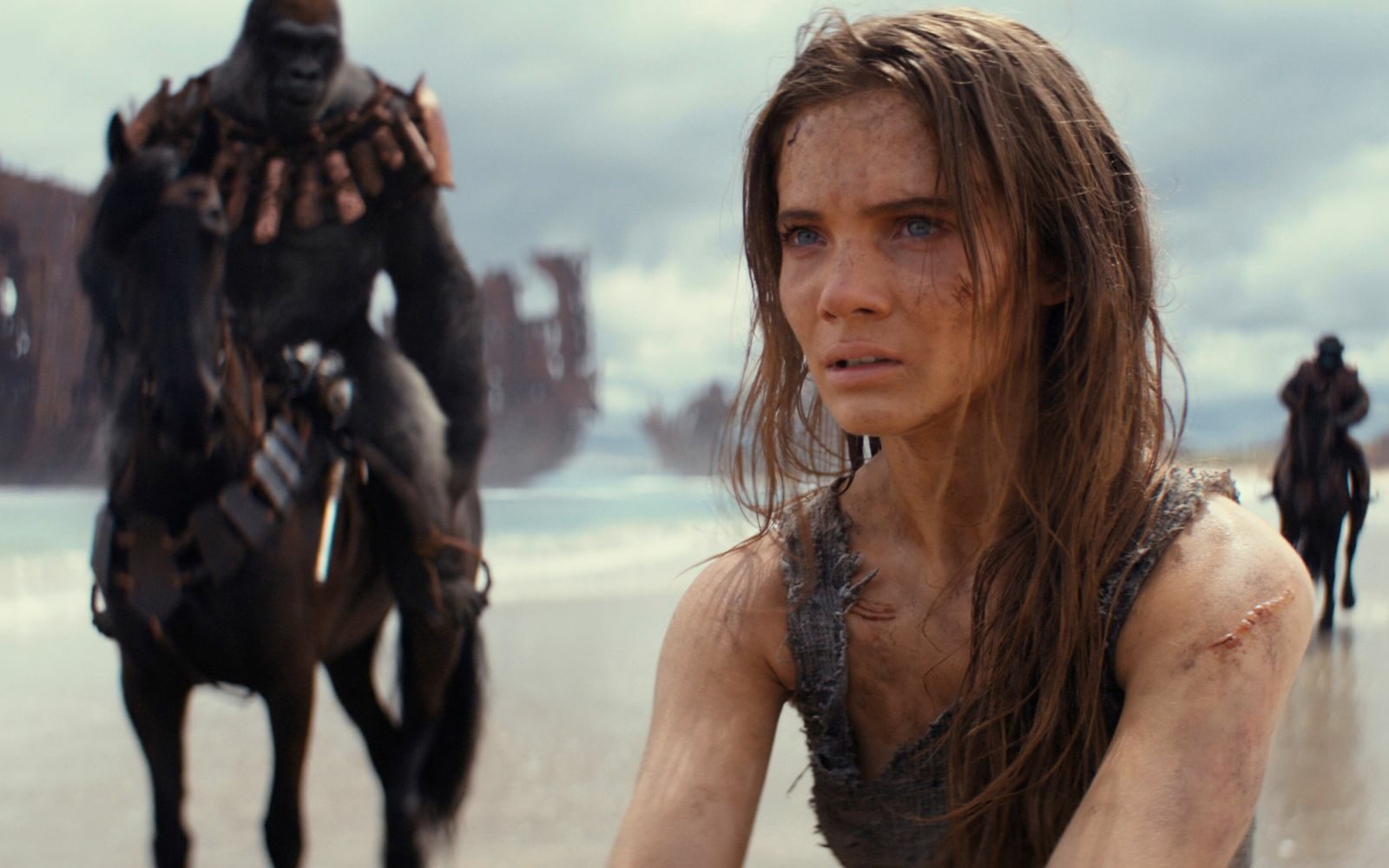
Kingdom of the Planet of The Apes is an Unnecessary but Worthy Addition to the Franchise
Wes Ball’s Continuation of the Apes Franchise Reminds Us Why It’s So Timeless.
Directed by Wes Ball
by Prabhjot Bains
- Published on
Hollywood has a problem with finality. Just when we think a story couldn’t end more perfectly, the industry always seems to resuscitate it to the point of irrelevance. The Planet of the Apes franchise is no exception in this regard: rebooted multiple times, across multiple decades, until its most recent trilogy (Rise, Dawn, and War) gave us one of the most complete and satisfying character arcs in recent memory. Building upon Caesar’s story – of a former lab monkey turned messianic leader of an ape uprising – not only feels like a daunting task, but an unnecessary one.
Nonetheless, Wes Ball’s Kingdom of the Planet of The Apes tackles it head-on, proving that just because something’s unnecessary, doesn’t mean it’s not worthwhile. Kingdom cements itself as a strong continuation of Caesar’s trilogy, tapping into what makes the series so moving, rich in character, and ultimately, timeless. While it doesn’t reach the heights of its immediate predecessors, it understands that big emotions propel big set pieces.
Taking place many generations after Caesar’s time, Kingdom is set in an age where ape civilizations dot the planet and humans have entered a feral, nomadic state. When self-proclaimed ape king Proximus Caesar (Kevin Durand) twists his namesake’s teachings to annex other clans into his “kingdom,” our protagonist, Noa (Owen Teague), journeys to save his village. Alongside a wise orangutan, Raka (Peter Macon), and a human girl, Mae (Feya Allen), he discovers countless truths about the world that came before and the future that lies before his kind.
While on the surface Kingdom reads as familiar blockbuster fare — even repeating the narrative beats of its prequels — it’s paced and structured unlike most. From its first frame, Ball and screenwriter Josh Friedman remain committed to character, glacially taking us through relationships, motivations, and moments of quiet, personal growth. Each character is never rendered a monolith, from the noble Noa to his intimidating foil in Proximus Caesar. Instead, all are capable of both kindness and cruelty, strength and cowardice.
The effect is a testament to the film’s groundbreaking special effects, which capture a vast array of subtle feelings across each ape’s face, bringing forward a level of emotion even most live-action movies struggle to conjure. It’s rare to see motion capture used this way, prioritizing the emotional core of the film rather than the enveloping spectacle. While not teeming with gigantic set pieces, Kingdom feels vast because of the well-developed characters and earned arcs underpinning them.
That isn’t to say that Kingdom isn’t also armed with visual majesty. The film luxuriates in its solemnly beautiful post-apocalyptic world. Proximus’ rusty, coastal kingdom is one of many stunningly realized locales, seamlessly giving way to verdant and ruined cityscapes. Its approach to world and character design strikes at the heart of what makes the series so special, manifesting as a cautionary tale about human nature, and our penchant for self-destruction.
Though Kingdom of the Planet of the Apes isn’t as commanding, or as memorable, as the two Matt Reeves-directed films that preceded it, the experience still packs an emotional, existential punch. Despite not being as grand or eventful as some may hope, like the greatest sci-fi films, it points a mirror back at us, asking: who was this world made for?


